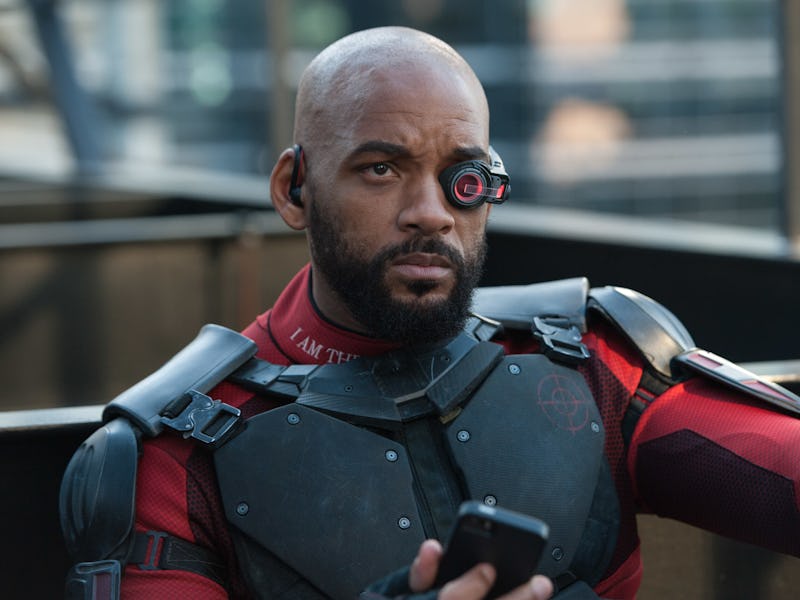Where Does 'Suicide Squad' Fit in the DC Cinematic Universe?
What purpose does it serve for the universe to have these guys?

A bunch of super-villains got together for a nihilist anti-party in David Ayer’s Suicide Squad, the third film in Warner Bros. and DC’s increasingly troubled (critically, but not financially) cinematic universe. With the great, cape-wearing machine still marching forward for Wonder Woman and Justice League, the new film begs a deceptively simple question: Where does Suicide Squad really fit in the DCU?
It’s more than just the film’s placement in a huge timeline, which is right after the events of Batman v Superman: Dawn of Justice (Remember: supes is dead). More importantly than that, what is Suicide Squad’s purpose in the DC universe?
The DCU is reeling after the death of Superman, so A.R.G.U.S. lead Amanda Waller brings forward Task Force X, a program that employs dangerous meta-humans “to do some good.” To Amanda Waller, they were all lucky Superman was a Kansas farm boy. The next Superman, as she says, might not be.
Most of the Suicide Squad come from Batman mythology: Deadshot (Will Smith), Harley Quinn (Margot Robbie), Killer Croc (Adewale Akinnuoye-Agbaje), and of course, Joker (Jared Leto), all had their start in Gotham; Deadshot debuted in Batman #50, Killer Croc started in Batman #358, while Joker started in Batman #1 in 1940. Suicide Squad is in many ways a Batman movie without much Batman.
The others, like Captain Boomerang, Katana, and Rick Flag come from other texts like The Flash, The Brave and the Bold, and Strange Tales, but you get the idea: All these goons come from somewhere in DC’s mythos.
But what’s the purpose of Suicide Squad, both in-universe and as a vehicle for the franchise? Comparisons to Marvel’s Guardians of the Galaxy are apt, but perhaps incomplete. At DC’s rival Marvel, fantasy magic hasn’t had a real part of the universe; Thor and Asgard are highly advanced science indistinguishable from magic, while Vision is a cosmic entity. He’s not magic. That’s where Stephen Strange comes in with his movie this November: He’s bringing actual OG, Gandalf-style magic to the MCU.
Suicide Squad introduced magic into the DC universe, for better or worse. Although it’s just three movies in, Man of Steel and Dawn of Justice defined the DC universe as rooted in science fiction with abominations (Doomsday) and aliens (Krypton). Wonder Woman, from Themyscira, is capable of some magic, but in her movie debut, she mostly she just swung a sword without getting scratched. In Suicide Squad, the evil Enchantress (Cara Delevigne) is a legit 6,000 year-old witch capable of great powers, and her purpose in the plot downright mimics Ghostbusters.
Why, one might wonder, was there magic injected into Suicide Squad in the first place? Wonder Woman is a perfect candidate to introduce mysticism, especially since Patty Jenkins’s Wonder Woman is set long before any of these movies occur. If not, another prime candidate is waiting in the wings: John Constantine, the brash street magician from London who lives between gritty “realism” and dark magic. He ushered in Arrow, the DC series that once aimed to be grounded in realism, with hyper-supernatural elements in Season 4. A Justice League Dark movie led by Constantine was in development for awhile, helmed by Guillermo del Toro no less, but that project is as dead as a zombie right now.
Much of the fun intended by Suicide Squad was gleeful nihilism: It’s bad guys, nothing they do should really matter, so enjoy the mayhem. But the film so confusingly tried to redeem these punks in the process, and the result winds up a mixed and unfulfilling experience. But for the purpose of the DC universe, instead of making any sense, it only adds to the chaos.